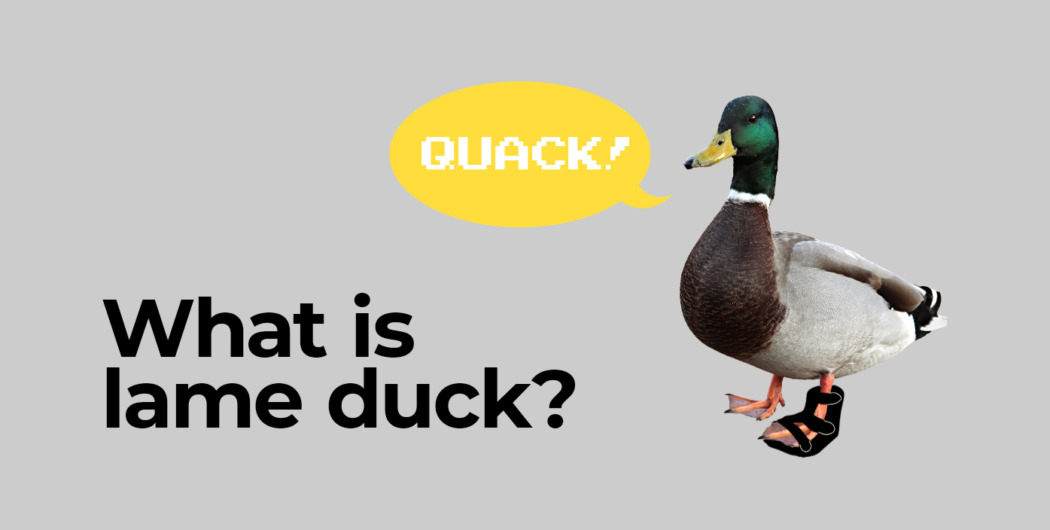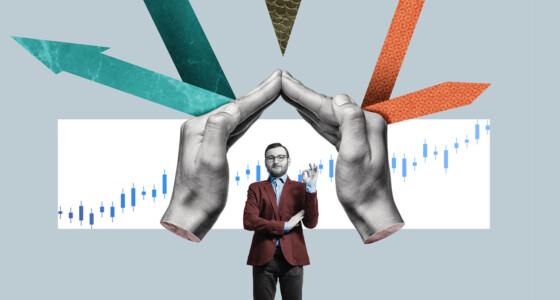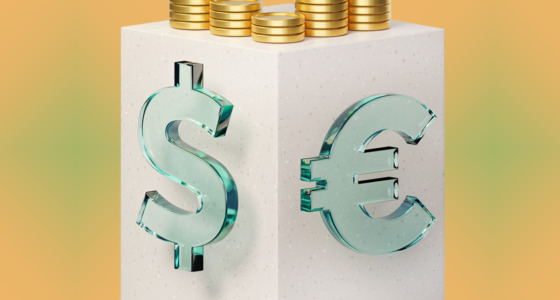

As a rule, the stock market has such a huge number of terms that a beginner will have to spend a lot of time studying them. Some definitions are critically important because you will have to deal with them almost every day, and some are seemingly strange and not as crucial — for example, lame duck. Let’s figure out who it is and where this strange title originated.
The first official reference to the term was documented in the 1760s. Also, this term is mentioned in the Classic Dictionary of the Vulgar Language, published in 1788. By the way, it is interesting that bull, bear, stag, lame duck and other nicknames for traders appeared at about the same time.
Understanding lame duck
When a trader has been extremely unsuccessful and lost a lot in the financial markets, they may be hesitant about trading once again. They believe they have experienced enough, and they do not want to deal with it anymore. This is the type of trader that the term lame duck refers to.
The term was mainly popular in the United Kingdom, and, at some point, it also became a thing in the United States of America. However, it has a bit of a different meaning in the U.S. Over there, it also describes business schemes that were not financed enough.
Around the time the term lame duck became popular, the terms bear and bull also originated. Bear is a word that refers to falling markets, whereas bull is a word that describes markets that shoot up.
The lame duck term is out of use today.
Lame duck used in other fields
Lame duck is a term used in more fields than just trading. For instance, it is also employed in politics.
In politics, the term represents a politician who was ineffective and has not been successful at all. Also, it’s a politician who has opted for no contest in a different election.
The expression can have more meanings in the world of politics, though. It can also refer to a politician who is not eligible for a different term and even after losing an election is still in office. The politician who wins the election will end up replacing him/her.
This is not a term that is still in use, though. It was used a long time ago, in the 18th century as the phrase was very popular in some parts of the United States and the United Kingdom in the mid-1760s.
Definition in the financial sphere

Let’s start with the most important thing, namely the lame duck meaning. Usually, this term refers to any trader who has suffered major losses on their investments (for instance, could not cope with the loss or did not pay the resulting debt) and ceased activities in this sphere. The first mention of this term goes back to the 18th century, at the time when the London Stock Exchange was established.
Sometimes a lame duck can refer to a speculator who most often sells short shares, and is then unable to pay the full amount when the time comes to cover the short position because prices actually shoot up sharply.

Why are unsuccessful traders called lame ducks?
The name itself comes from the “lame duck” idiom, denoting something or someone who is at the final stage of their existence. The fact is that a lame duck can no longer swim or walk normally. It’s still alive, but its capabilities are declining so sharply, making it apparent that its days are coming to an end.
In addition, the typical duck walk that can be described as “waddling” is the perfect word to portray a trader’s leaving the business until their debt is paid off.
Other meanings
Soon after the term was rooted in the financial field, it was also adopted in politics. Usually, a lame duck refers to:
- a politician who is about to leave their post;
- a politician who failed in the elections and plans to end their career;
- a politician whose office term is almost over, and a successor has already been chosen.
Typically, the lame duck status is awarded to a president after a successor has already been elected, and to congressmen between elections in November and the oath in January. By the way, you can find some interesting caricatures of politicians redrawn in the form of sad ducks with broken wings.
Conclusion
So, as we have already found out, the lame duck meaning in stock market describes an unsuccessful trader who can no longer do business due to critical losses and the inability to pay their debts. This definition is not newfangled slang at all, as its first mention occurred in the 1760s, and the term itself was included in the Classic Dictionary of the Vulgar Language, published in 1788. Later it migrated to the sphere of politics.
So, keep a close eye on forecasts and trends to manage your budget properly and reduce the risk of turning into a lame duck!









